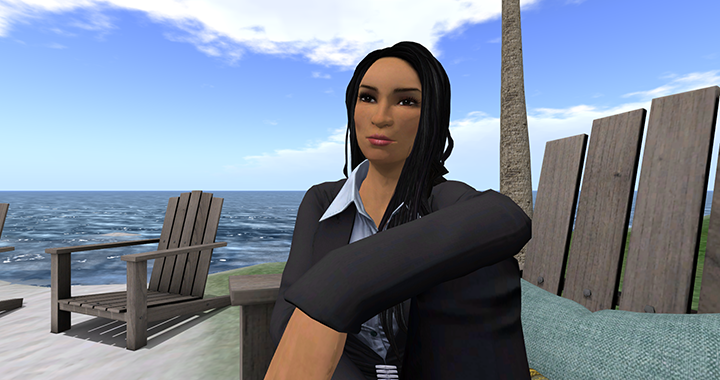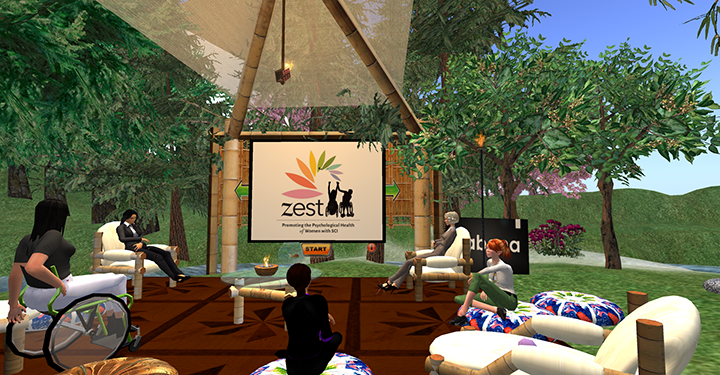As a woman with a T6 spinal cord injury, I’ve spent most of my years post-injury practicing law. I was largely uninvolved in the disability community until I decided to participate in a weight management study for women with mobility impairments. After the study was over, I was approached by one of the research scientists and invited to become a peer facilitator for a weight management group program for people with spinal cord injury. This was the beginning of my journey to becoming active in the disability community and merging my world of legal research with medical research.
For the past two years, I have been partnering with the same group of researchers on a new study being conducted at TIRR Memorial Hermann in Houston, Texas. The study is testing an intervention designed to promote psychological health and well-being in women with SCI. The study is called ZEST. In this study, participants are randomly assigned to either the Zest intervention group or the control group. While only the intervention group participates in the 10 weekly group sessions, both groups are provided with the study materials. Both groups contribute to the study and are important to the study’s results.
As a facilitator of the ZEST intervention, the most exciting part is foremost the potential to improve the emotional health of women with SCI. But it’s also exciting to have these sessions in a virtual world, Second Life. Both the intervention group and control group are introduced to Second Life as part of the study enrollment process, but only the intervention group creates an avatar to move around in our private space in this virtual world. And move around is exactly what they do! Avatars fly, walk, sit, stand, and even dance! Sessions are held in virtual locations with soothing water sounds, beaches, and calming environments. Participants are even given the option to have their avatar use a wheelchair; however, my experience has been that most choose to participate without their wheels.
Participants of ZEST join the sessions by logging in from their computers from home, work, or any other accessible location. The use of computers and assistive devices has made it easier for me and the participants to be a part of this very important study. I don’t have to stop practicing law or leave my desk.
In co-facilitating ZEST groups, I’ve observed an abundance of resilience and growth throughout the sessions. I’ve seen participants develop new friendships and learn skills to help maintain or establish good psychological health as a result of their participation in ZEST. The group members are supportive of one another, and their overall satisfaction with the program has been very good.
One of the goals of ZEST is to help women with SCI live a more zestful life. I love the role I play as a facilitator doing my part to contribute to the health and well-being of the disability community. ZEST will be recruiting potential participants through August 2020. I encourage women with SCI to participate in this valuable study because it focuses on improving psychological health and overall quality of life. Join me in “Finding Your Way to ZEST.” For more information about the study, contact the Zest study by email at Zest@memorialhermann.org or by phone at 713/797-7572. Hope to see you there!
** This post was originally published on https://www.newmobility.com/2020/04/finding-my-way-to-zest/



